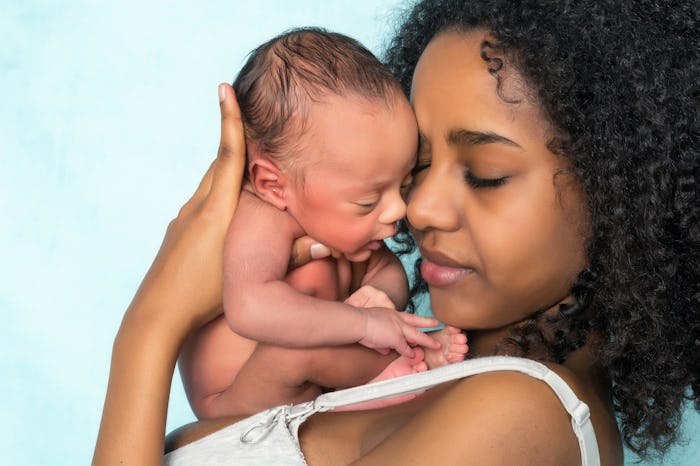Life

7 Ways Your Baby Is Trying To Say They Feel Safe
In those first weeks of new motherhood, it can feel like you need an interpreter for your newborn. With their limited means of communication, figuring out what message your baby is trying to get across to you can be a challenge. With time, however, you learn to distinguish the "I'm hungry" cry from the "pick me up" cry and the "change me" cry. As it turns out, little ones have quite a bit to tell you if you know how to "listen," and that includes the ways your baby is trying to say they feel safe.
I remember my daughter's baby days with extreme fondness. Her dad and I had our share of sleepless nights, but, overall, we were blessed with a laid-back baby. I definitely attribute some of that to luck of the draw in her personality, but I also think we as parents contributed by creating an environment that was safe and full of love. She slept swaddled in a bassinet next to our bed for the first six months of her life. I snuggled, sang, and read to her every single day. She was held by her parents, but we also frequently passed her off to friends and family so she would learn who her people were.
We were rewarded when our sweet girl gave us signs that she felt secure in her bond with us as well as in her world. I'm excitedly awaiting the arrival of our second child in a few months, and this time around, I'll know to look for these signals from baby number two that he feels the same:
They Sleep Well
This is not to say that if your baby doesn't sleep well, they don't feel safe. Sleep disruptions can occur for any number of reasons, including teething, reflux, and colic. In general, however, when your baby starts sleeping for longer stretches, you can attribute it at least in part to their feelings of safety.
According to Dr. Sears, night-wakings are related to survival. A newborn may wake instinctually as a protective measure. I take that to mean that when a little one begins to sleep more soundly, it's because their inner cave baby knows they're not in danger.
They Engage In Play
When a baby is getting their basic needs met, including those for attention, they're much more willing to play on their own. If you walk away while your baby is on the activity mat and they happily shake their rattle, roll their ball, or mouth their lovey, you know they've developed confidence in the fact that you will return.
They Are Comforted By You
The fact that your baby calms through your touch or voice is a sign of a well-established bond with you. If your little one is soothed when you pick them up, they're telling you that you are their safe person. By consistently meeting their needs for reassurance in stressful situations, you're also helping them feel confident about the world.
They Explore
Research shows that a securely-attached child will explore a room freely when mom is present. That doesn't mean that a baby won't get upset if mom leaves or feel the need to check in. Both of those are actually good signs. But when baby knows mom is a solid "home base," they'll confidently crawl around and investigate the environment.
They Cry
This may seem counterintuitive, but I'm referring to a specific type of crying — what Reader's Digest calls "crying with expectation." In this case, your baby is crying to communicate and not out of desperation. A baby who feels sure that their caregiver will reliably respond to them will cry when they need something and stop when that need is met.
The Conform To The Shape Of Your Arms
Your baby melting into your arms is its own reward, but the fact that they relax in your embrace is also a sign that they trust you. To me, it's like when a dog or a cat rolls onto their back to expose their belly. They let themselves be their most vulnerable with you because they know you won't hurt them.
They Smile
It's not just gas (well, at least not all of the time). When your baby starts smiling for real, they are engaging socially. Safe babies are happy babies, and happy babies are smile factories.
Check out Romper's new video series, Bearing The Motherload, where disagreeing parents from different sides of an issue sit down with a mediator and talk about how to support (and not judge) each other’s parenting perspectives. New episodes air Mondays on Facebook.